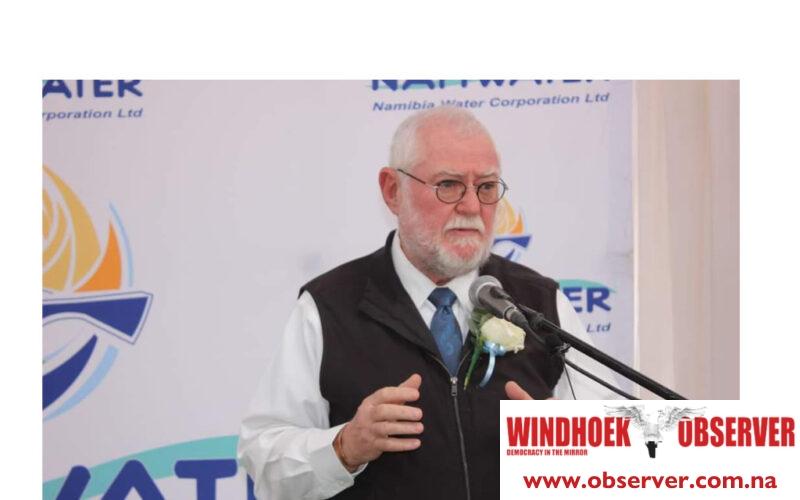Niël Terblanché
Amid a rising wave of cholera cases across southern Africa, which has claimed hundreds of lives, the Minister of Agriculture, Water, and Land Reform, Calle Schlettwein, opened a workshop on water treatment in the Southern African Development Community (SADC).
The workshop, aimed at addressing water quality, brings together delegates from SADC countries and East African nations.
The event, hosted by NamWater, focuses on the importance of proficiency in water testing and the collaborative efforts needed to maintain water safety amid increasing regional challenges.
The cholera outbreak, which has already caused significant loss of life, highlights the urgent need for safe drinking water.
Schlettwein acknowledged the situation when addressing participants of the SADC Water Quality Proficiency Testing and Evaluation Workshop in Windhoek.
He stressed the essential role water plays not only in sustaining life but also in supporting environmental sustainability and economic development.
Schlettwein pointed to the multitude of challenges threatening water resources in the region, including population growth, climate change, and transboundary water sharing.
“Namibia, being the driest sub-Saharan country, relies heavily on a variety of water sources such as groundwater aquifers, surface water from shared rivers, and increasingly, desalination efforts,” he said.
He also stressed the importance of water treatment and quality control, particularly in light of Namibia’s heavy dependence on shared transboundary water sources, including major rivers and aquifers that span across borders with neighbouring countries.
The workshop serves as a platform for regional cooperation, knowledge sharing, and the harmonization of water quality testing standards.
“Maintaining consistent and accurate water testing is vital to public health and environmental sustainability, especially as new pollutants emerge. The collaboration fostered by this workshop strengthens the region’s ability to verify water quality and establish reliable methods to ensure water safety,” he said.
According to Schlettwein, Namibia has long been proud of its ability to deliver safe drinking water that meets internationally accepted standards, a feat made possible by rigorous testing and the dedication of laboratory professionals.
“The proficiency testing programs, such as those discussed at this workshop, are critical for identifying areas that need improvement and ensuring that water quality remains high across the region,” he added.
Schlettwein also called for innovation and adaptation, especially in the face of a changing climate. He pointed out that water scarcity could lead to conflict over shared resources, making cooperation between SADC countries essential for sustainable water management.
He commended NamWater for taking the lead as a Proficiency Testing provider for the SADC region, reflecting Namibia’s commitment to excellence in water service provision.
The minister stressed that the quality and availability of water are more crucial than ever.
He urged all stakeholders to continue their work towards sustainable development, ensuring that safe, clean water is available for all.
Schlettwein encouraged participants to actively engage in the workshop, as collaboration and innovation are key to addressing the region’s water challenges.




